Shuggie Bain, the 2020 Booker Prize winner by Douglas Stuart (Picador)
In review by Alan Dearling
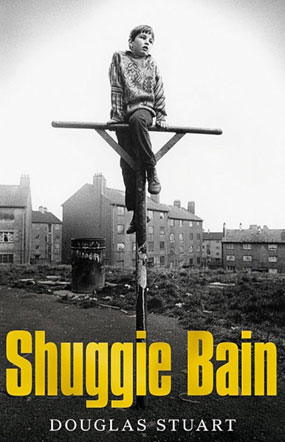
Over what should have been the Christmas festivities I was living for a few days in Shuggie Bain’s world. It’s an enveloping, transformative, technicolour account of the monochrome life in Glasgow’s bleak housing estates – the places where the schemies live. Shuggie’s world is one of bullying at school for being a ‘poofter’, a mother, Agnes, both proud and beautiful, plummeting into the gutters of swirling special brew and vodka. It’s brutal, yet it glows and bubbles with life, vigour and hope. The pits and the ship-building yards are slag heaps and rusting graveyards. The poorest and most dispossessed have been decanted into out-of-the-city new housing schemes. Places that were once the bastions of the future, architects’ dreams full of hope for a new future, that have shrivelled up, decayed and died. High rise tower blocks and shops boarded up with metal plates, perhaps taken from the dregs of the ship-yards. As Shuggie notes, just one Paki shop left to serve a community that lives on ‘tick’.
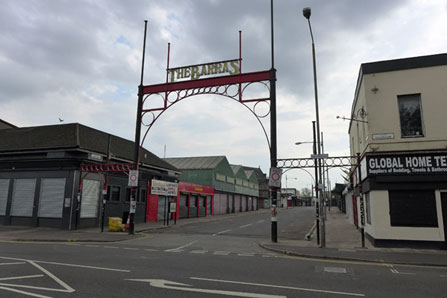
Author, Douglas Stuart is Shuggie Bain. It’s a very Scottish, a very Glasgow book, much of it is in dialect. The book is dedicated to the memory of his mother. Agnes in the book, a mum who daily retrieves her black seamed tights, her tight skirt and high heels, applies her make-up, slips on her angora jumper and old mink coat – her persona. She was better than the rest. She never loses that belief. And, she is the worst and most bitter drunk. Raped, beaten-up, abused, forever a loser in love, she also gradually loses her children. Her life, the first and last cigarette of the day, the first dregs out of the bottom of last night’s can. A half-life, exchanging her body in the back of a succession of black hackney-cabs for another succession of carry out tinnies. Shuggie is the product of her communion with one of the drivers, Big Shug.
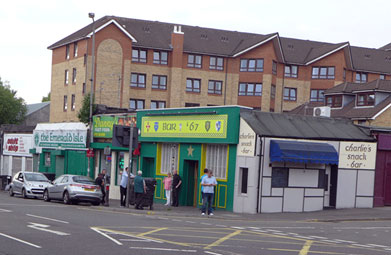
This is a Dickensian style book. Brilliant in its dreich darkness. Human, engaging and all-encompassing. It is life as observed by the most abused kid on the scheme. Shuggie is the kid who doesn’t fit in, not in his own head, not with his siblings, and certainly not with the other kids on the street or at school. Sometimes he attends school, most times he’s too busy running messages for his ma. Picking up the benefits book and collecting the money that he or his mum turns into another carry-out to oblivion. Or, bunking-off and wandering the laundry rooms of tower blocks and searching for tiny glimmers of nature amongst the greyness of each day. It sounds depressing and degrading. It is, but the writing, the images of near-destitution are somehow glorious, hopeful and redemptive, closer to Oscar Wilde’s, “We are all in the gutter, but some of us are looking at the stars.”
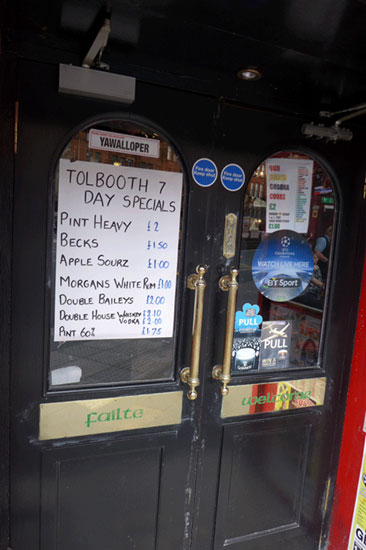
I’ve lived more than half of my working life in Scotland. My work for many years was in youth social work, trying to provide life-lines, last-ditch half-chances for kids like Shuggie, his brother Leek and Shuggie’s only friend, Leanne. I still live on a scheme, but I have escape routes, and always had them. ‘Shuggie Bain’ is real and memorable. You can live for a few days in the words and images it evokes. A testament to optimism, even if it is just a trip to the Bingo, the East End of Glasgow and the Barras and life seen through the bottom of a glass. In the end it is about humanity, about the human spirit. About survival. It’s about Scotland the indomitable. Pride, prejudice, religious bigotry, alcoholism, sexuality, growing-up in poverty, brutality and kindness.
For the bairns (Douglas Stuart calls them ‘bearns’) of the present, past and future on housing schemes and in poverty:
Fortitude and Resilience = Survival.
Courage, ingenuity and being gallus, (potentially) = Escape.
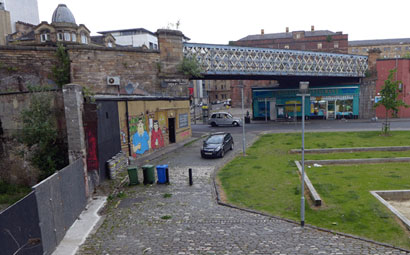
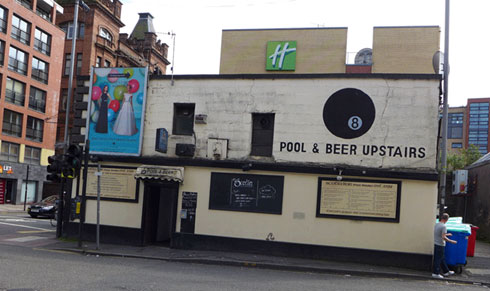
Of its kind, it’s a masterpiece. If you’ve only seen the soaps on the TV and don’t have personal experience of the real day-to-day lives of the UK’s poor…Read it…
